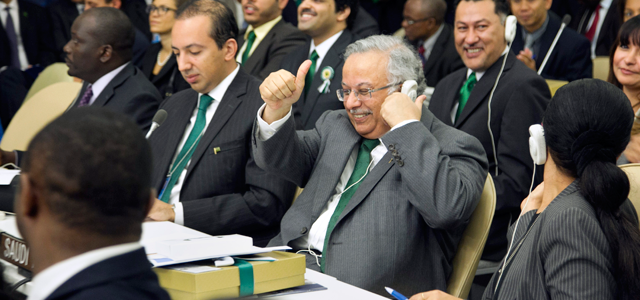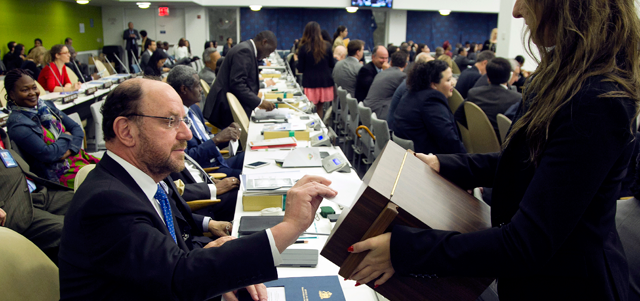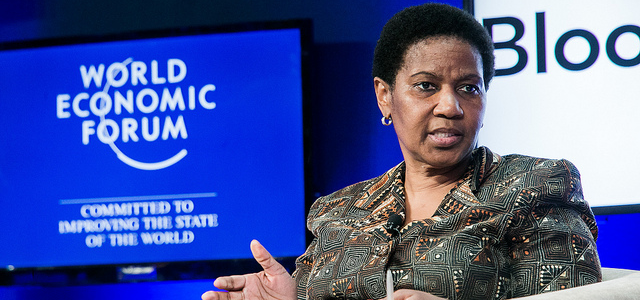- Late last week, the Philippines and Timor-Leste announced their candidatures for the UN Women executive board. The Philippines suddenly changed their mind, withdrawing on Monday. This was not a case of cold feet or wishy-washiness, but rather almost certainly a strategic decision on regional unity. The Philippines and Timor-Leste, encouraged by Western allies, likely announced their respective candidacies before learning of the other’s. Upon learning of Timor-Leste’ candidacy, the Philippines bowed out. This lined up Iran for defeat but ensured amity among the remaining Asian candidates who were able to avoid a truly competitive election. Expect the Philippines to get one of the 5 Asian seats that will open up in 2013.
- Iran may have been defeated in its campaign for the Executive Board, but the government remains a member of the Commission on the Status of Women. The 45-member Commission, along with the General Assembly and ECOSOC, will continue to “provide normative policy guidance” to UN Women, whereas the 41-member Executive Board’s focus in on “operational policy guidance.” It will be up to ECOSOC to “establish appropriate and concrete linkages between the Commission and the Executive Board to ensure consistency between the overall policy guidance set by the Commission and the operational strategies and operational activities approved by the Executive Board.” Fifteen states will sit concurrently on both bodies in 2011.
- Thought pleased with Iran’s defeat, human right groups expressed continuing concern over the non-competitive slates that included Saudi Arabia, the Congo and other states with poor women’s rights records. Philippe Bolopion, UN specialist for Human Rights Watch, said that Saudi Arabia, elected as a top contributor to the new entity, had essentially “bought” a seat on the board. “But by being on the board they have essentially put the spotlight on their own record,” said Bolopion. Joshua Keating, over at FP’s The Cable, pointed out that “…according to the U.N. Development Program’s own Gender Empowerment Measure, Saudi Arabia is actually a worse country for gender equality than Iran,” coming in next to last of the 93 countries ranked. CNSNews’ Patrick Goodenough noted that five of the newly elected members – Iran, Saudi Arabia, Pakistan, Cote d’Ivoire and Ethiopia – scored in the bottom 10% of countries ranked in the World Economic Forum’s Global Gender Gap report.
- Twenty members of the Executive Board are also members of the 47-member UN Human Rights Council. Each of the P5 members on the Security Council were elected to the Executive Board, as were permanent-membership aspirants Brazil, Nigeria, India and Japan. The four BRIC countries were also elected. Nine members of the Executive Board are members of the Organization of Islamic Countries, which human rights groups have criticized engage in bloc voting on the Human Right Council.
What other take-aways can be assessed from Wednesday’s election?





So the opportunist Bernard Kouchner has been replaced by MOM – Michèle Alliot-Marie- as Minister of Foreign Affairs by Sarkozy. Will Ban give him a premium post ? He has tried before but has been unsuccessful for the Global Fund and WHO………….
Follow-up comment on Iran being a member of CSW one needs to look at the real impact that a member of this Commission can have and to remember that any resolution or decision taken by CSW can be overwritten by ECOSOC during its substantive session.